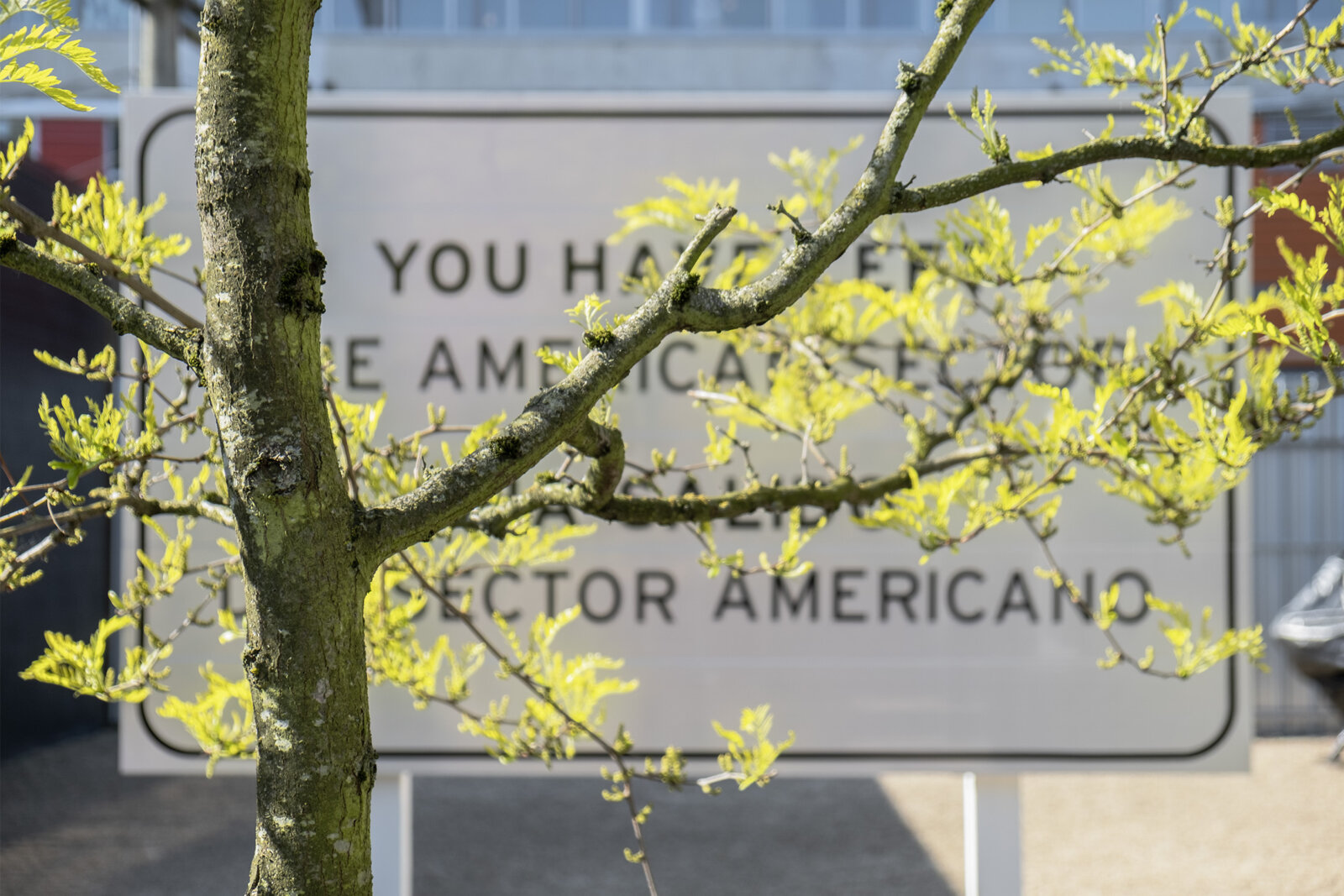Ron Terada – You Have Left the American Sector, MAY 1–JUNE 14, 2025
Ron Terada
You Have Left the American Sector
May 1–June 14, 2025
Catriona Jeffries
The title and text of Ron Terada’s You Have Left the American Sector (2005/2011) is adapted from the original Checkpoint Charlie sign, which designated the Western Allies’ crossing point of the Berlin Wall which separated East and West Berlin during the Cold War. Even after its fall, the wall persists as a symbol of the consequences to the post-war partitioning of European borders as well as the conflicting socio-political ideals of the Western Allies and the Eastern Bloc.
Infamously, You Have Left the American Sector was first installed in Windsor, Ontario in 2005—commissioned by the Art Gallery of Windsor and approved and manufactured by the city—with the sign’s message in English and French visible to the American side of the Detroit River. The work instantly accrued complaints from passersby, and the city had the work removed within five days of its installation and subsequently put into storage. In each iteration of this work, Terada pairs the English title text with a translation in a second language particular to its place of production or exhibition. This edition was first commissioned for Terada’s solo exhibition at the MCA Chicago in 2011 and features English and Spanish.
Installing the 2011 iteration of the work in the gallery’s courtyard today simultaneously officiates Spanish in the authoritative context of the sign, while pointing beyond the United States’ southern border with Mexico and into the American government’s Cold War-era interventionist policies within Latin America. It could also be said that such policies have influenced the outcome of the most recent Canadian federal election, reflecting the fear of a global rise in extreme right-wing politics, and especially anti-immigration hate.
In this politically fraught moment of global social and political upheavals, the work asks heavy questions of the viewer in relation to the movement of migrants and national borders, and questions our own country’s threatened sovereignty, colonial history, and ambivalence to the rise of fascism amidst Western imperialism.







